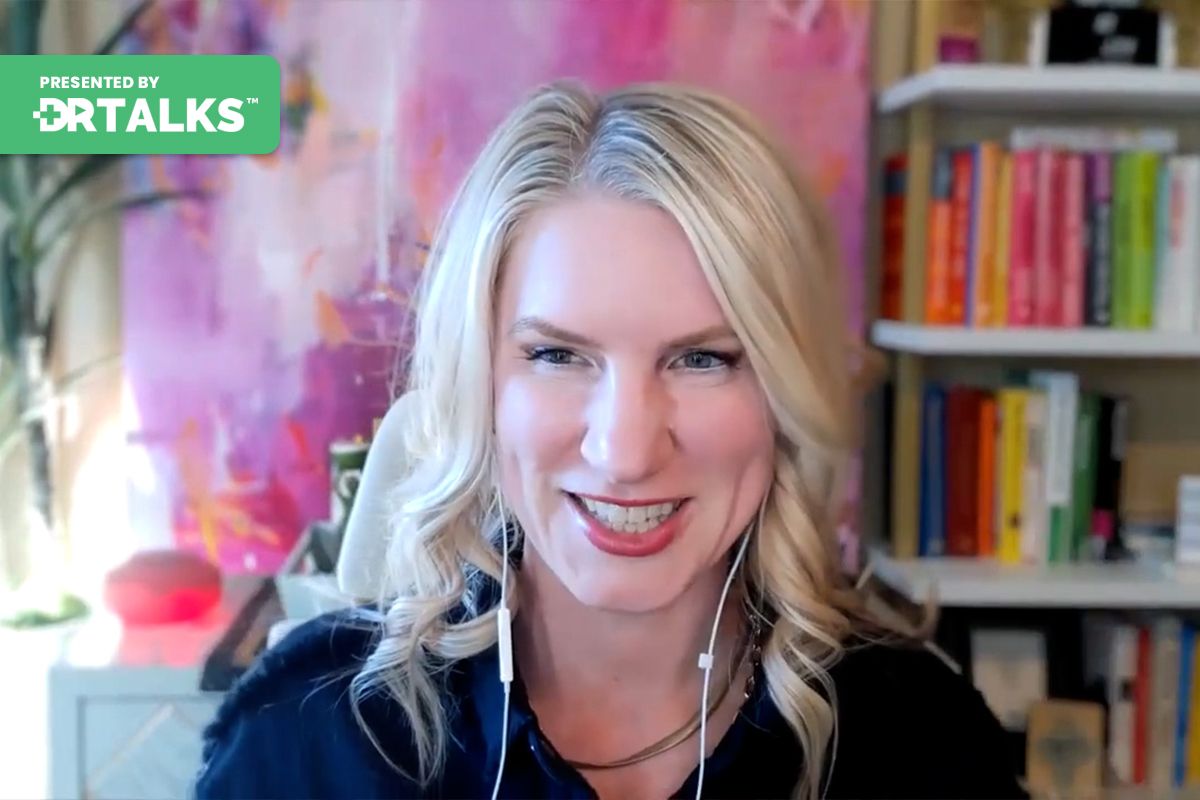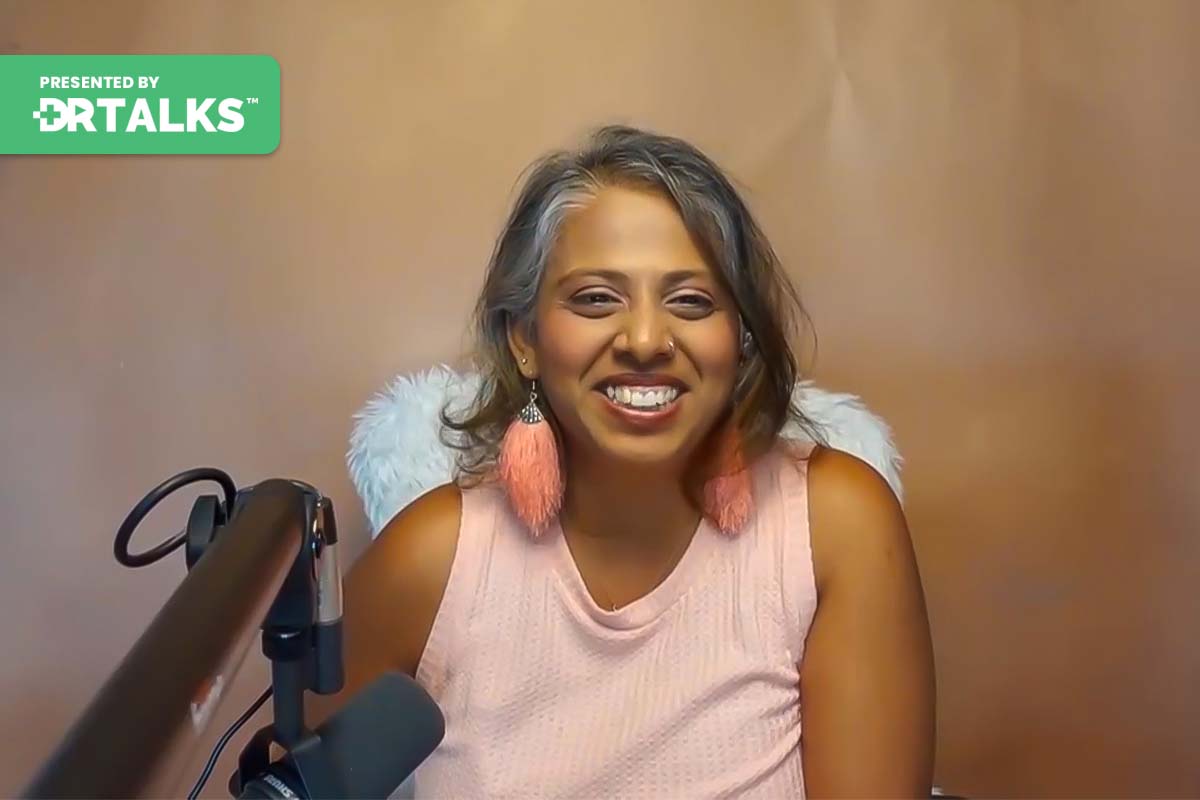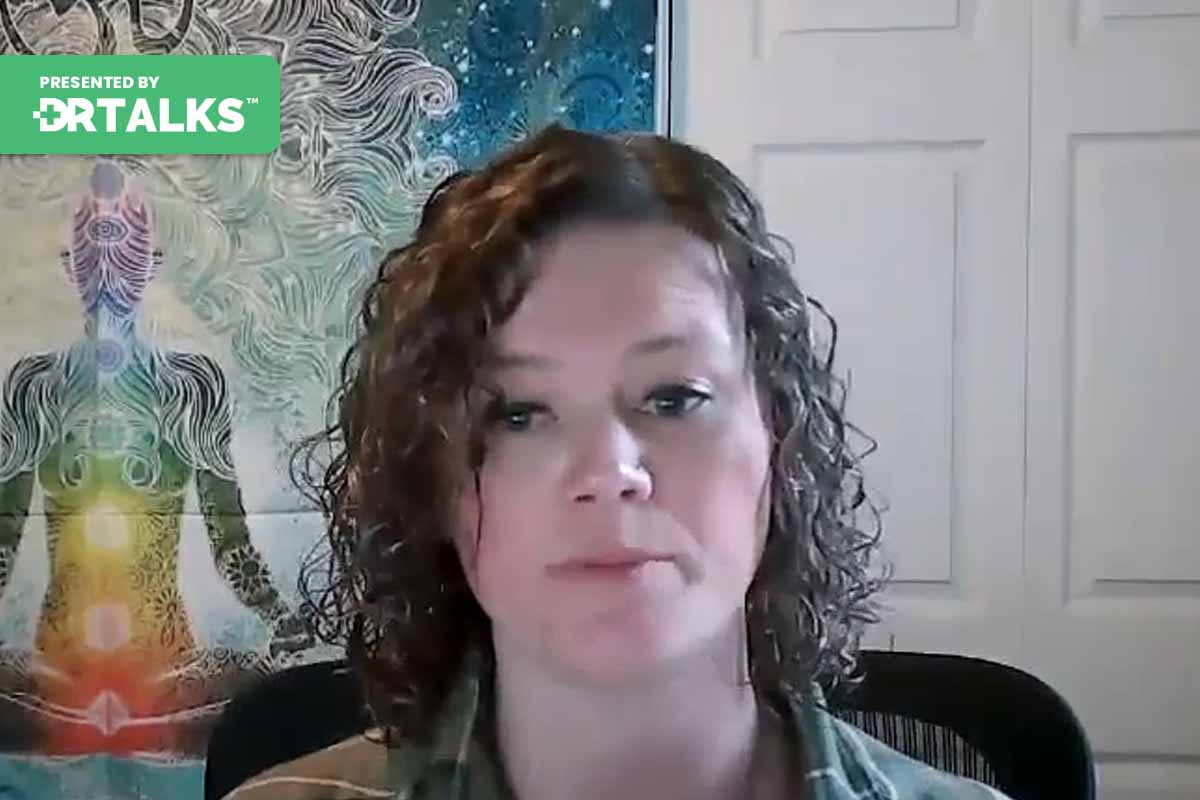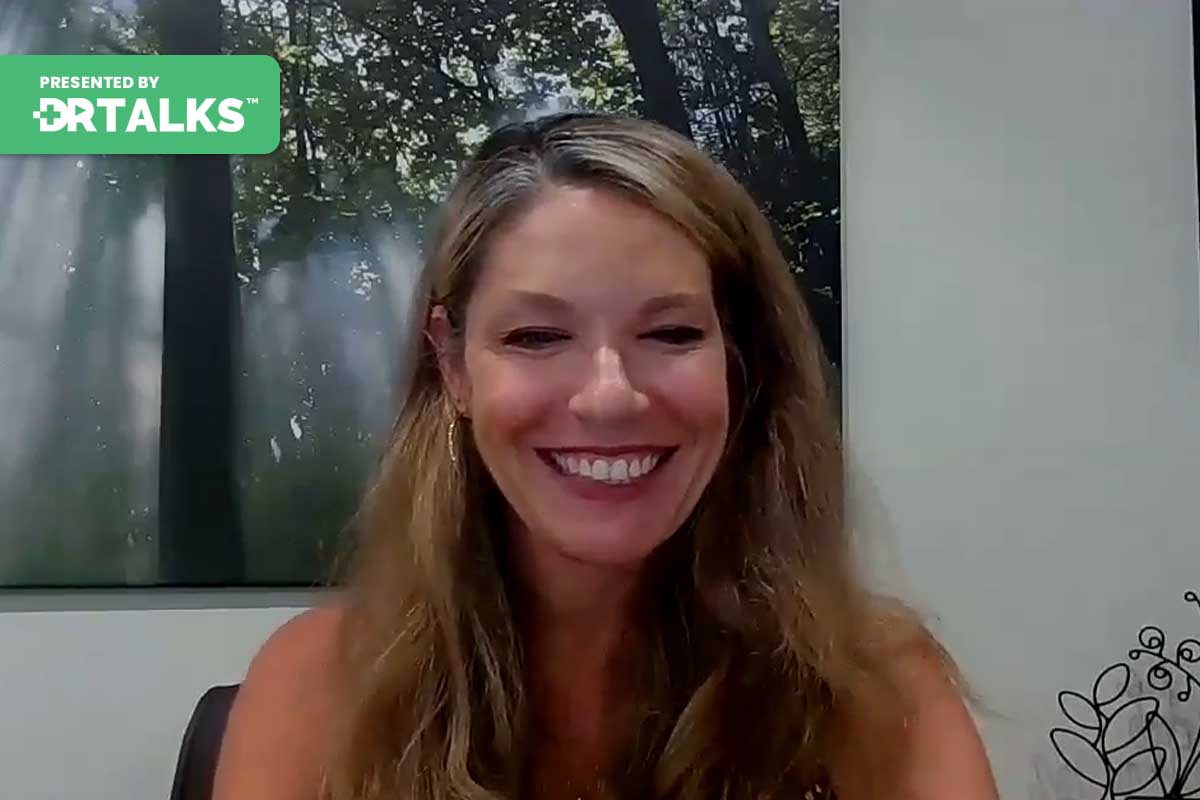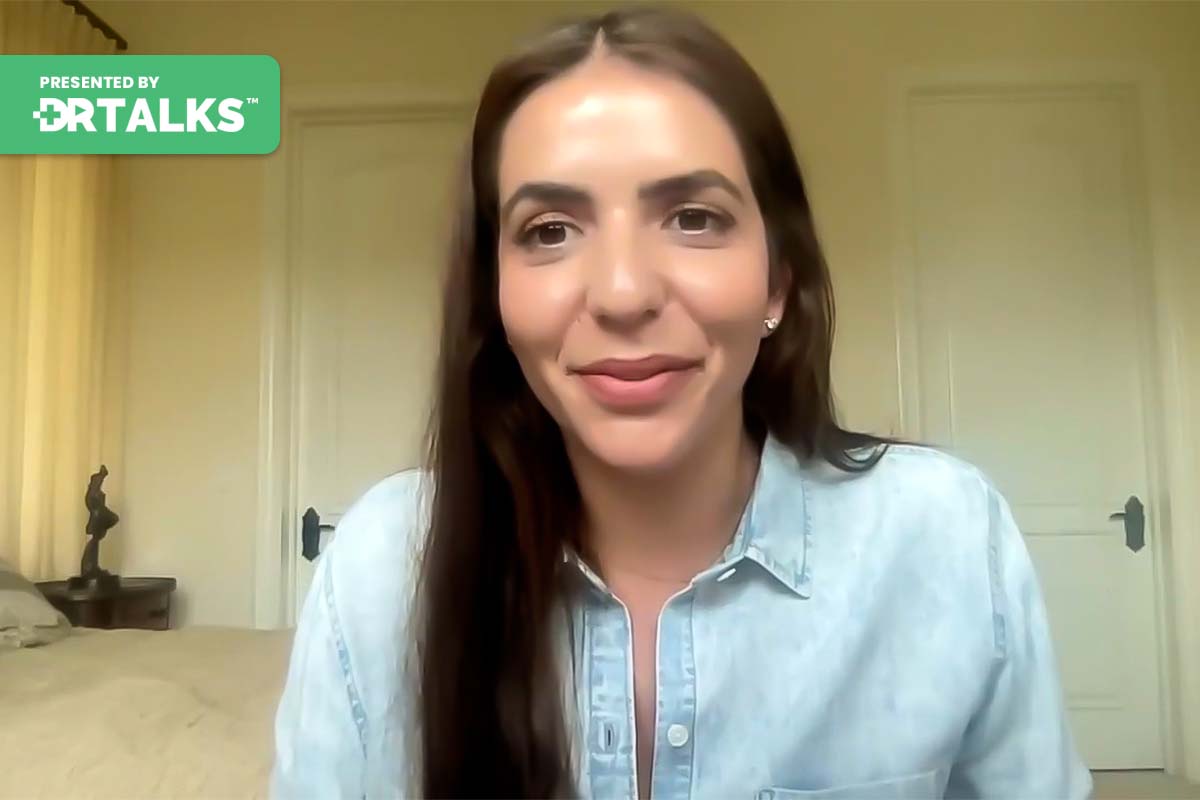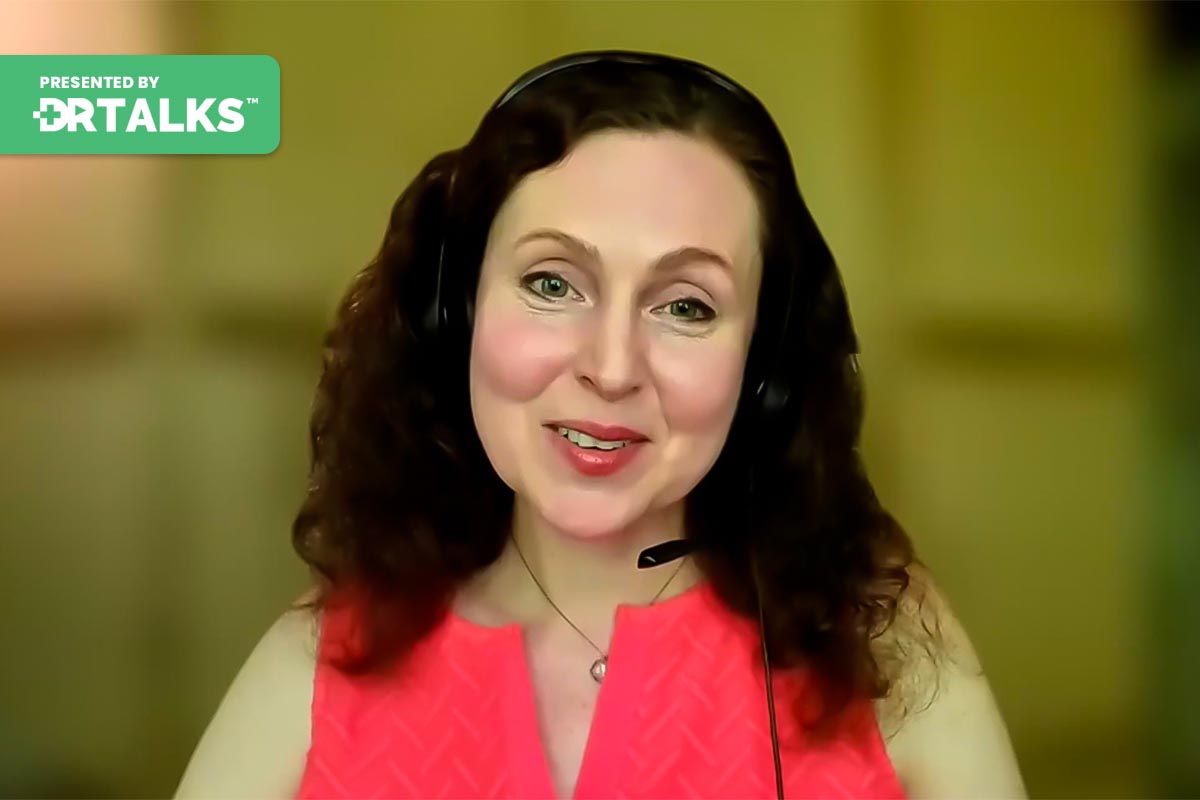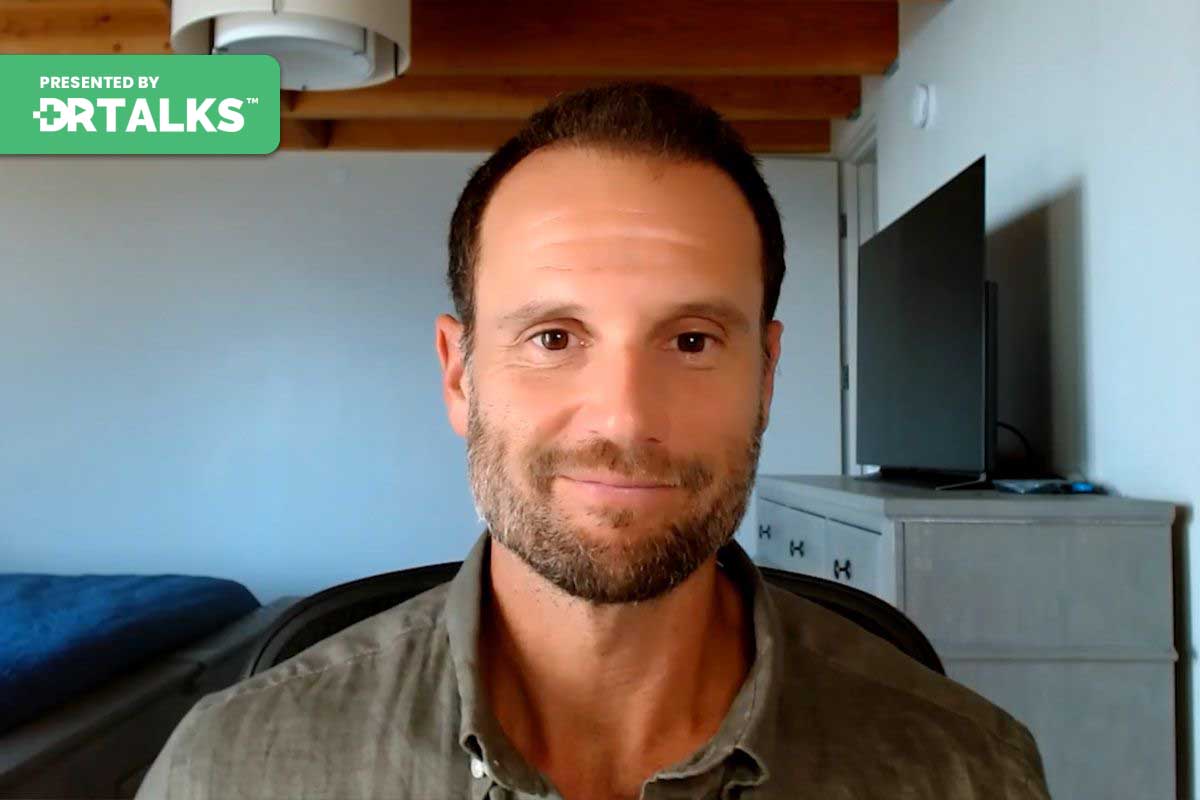Join the discussion below

Felice Gersh, MD is a multi-award winning physician with dual board certifications in OB-GYN and Integrative Medicine. She is the founder and director of the Integrative Medical Group of Irvine, a practice that provides comprehensive health care for women by combining the best evidence-based therapies from conventional, naturopathic, and holistic... Read More
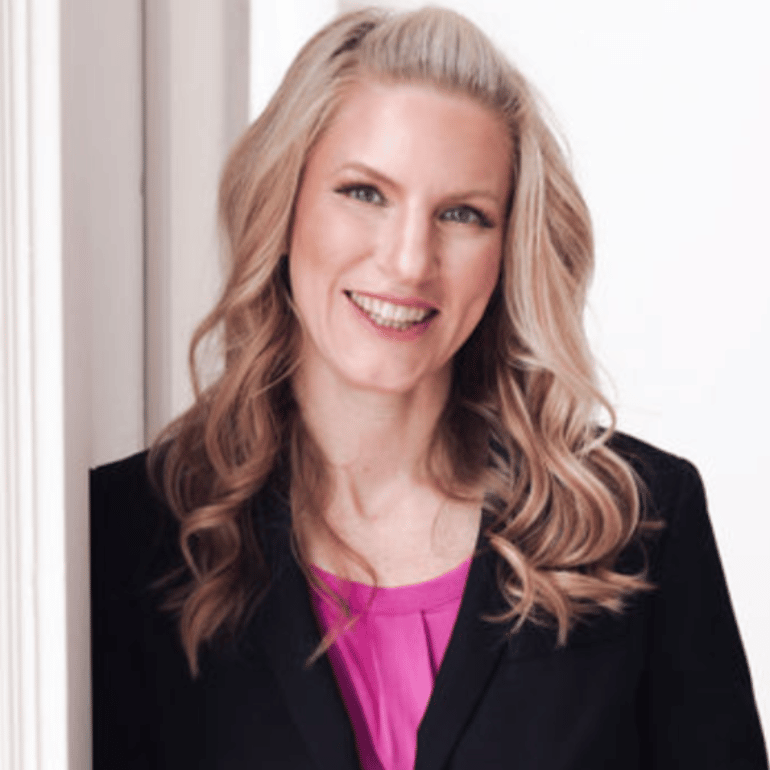
Carrie Jones, ND, FABNE, MPH is an internationally recognized speaker, consultant, and educator on the topic of women's health and hormones with over 20 years in the industry. Dr. Jones graduated from the National University of Natural Medicine in Portland, Oregon where she also completed a 2-year residency in women's... Read More
- Understand why estrogen detoxification is necessary and the steps involved
- Learn how to improve detoxification and why products like DIM may not suit everyone
- Discover tips, supplements, and dietary sources that support estrogen metabolism
- This video is part of the PCOS SOS Summit
Related Topics
Adipose Tissue, Androgen Excess, Aromatization, Bones, Brain, Breast Tissue, Cycling, Detoxification, Diagnosis, Endocrine Disorder, Estradiol, Estriol, Estrogen Metabolism, Estrogen Receptor, Estrone, Fertility, Gi Tract, Heart, Hormones, Hrt, Inflammation, Kidneys, Liver, Mood, PCOS, Skin, Vaginal Area, Weight, Womens HealthFelice Gersh, MD
Welcome to this episode of the PCOS SOS Summit. I am your host, Dr. Felice Gersh. With me today is a wonderful naturopathic physician who is an expert in all things women’s health and hormones and you know how dear to my heart is, Dr. Carrie Jones. Welcome, Carrie.
Before we begin, I would love to have you tell our audience a little bit about yourself, how you got interested in women’s health and hormones, and what you are up to now. Then we will do a deep dive into the topic that we have already discussed a little bit about estrogen and its metabolites and metabolism and all things related to estrogen and how you get rid of it when you do not want it anymore.
Carrie Jones, ND, FABNE, MPH
My goodness. Well, thank you so much for having me. As I said earlier, it is such an honor to be here, to be part of the PCOS SOS Summit, and just to be able to talk to you. I just love learning from you. This is, and I even have one for those who are watching the video, one of those, just to show my finger is her PCOS SOS book on my bookshelf. I started this journey a long time ago. I was raised in this in the south, essentially, and I was raised in Kentucky, and our sort of sex-ed health class was taught by the football coach. You can imagine how that went. I got into health and health optimization, but I did not know what that was or what that looked like. I moved out to the West Coast, to Portland, Oregon, found naturopathic medicine, and then found a wonderful mentor who taught me a lot about hormones, women’s health, HRT, cycling, and fertility.
I realized a lot of my colleagues, friends, and family did not know the things I was learning. I am sure when you are with your patients and you are explaining something and they are full-grown adults, they will go. Dr. Gersh, I never knew anybody taught me that about my body. I just kept getting that over and over. I decided to stay in hormones because it just became my passion to help women understand what was happening with their bodies. I feel we were just taught these things at a much younger age. We could probably avoid a lot of the issues that we struggle against because we would know what they were. We might know what to do. We would at least know a few things to try because we had been taught them from a young age. That is why I am so honestly excited to be here, just to continue to help, especially with PCOS being the number one endocrine disorder in women. I was just reading a statistic yesterday that says that 75% of women with PCOS do not get diagnosed. They get brushed off, blown off, and handed the pill, and it takes them a long time to get that diagnosis. I thought that was so unfair. and so that is what I continue to help do with you: educate well.
Felice Gersh, MD
Yes, we are two peas in a pod. We figured that out a long time ago. The sad thing is, after all that time and effort spent trying to get a diagnosis, once they get it, where is the treatment? You said it has not changed in 30 years. It is not getting to what I found so appealing. It is so innately attractive about naturopathic medicine, which deals with root causes and helps the body heal itself. One of the things that does not get discussed, I think, anywhere near enough is the role of estrogen in its relationship to women with PCOS. Most people just think of it in terms of androgen excess, testosterone in particular, and it is all about testosterone, testosterone, testosterone. It is, of course, also enormously about estrogen. I have talked about this before, that the ovary of women with PCOS is the most common form of PCOS, and as a syndrome, of course, it is not just one thing. It is a compilation of a variety of causes, and it manifests in similar symptomatology. That is why it is called a syndrome.
But when you talk about the majority of women who deal with PCOS, they have a problem that is going on in their ovaries in the production of the estrogen that is made by the ovaries, estradiol. But all good things come to an end, and they have a problem making it, but maybe they also have a problem getting rid of it. You know that you do not have out there and do not have the same estrogen in your body now that you had 10 years ago. It means you do not have every cell yet. You had the day you were born. Things come and go in your body. We have mechanisms for elimination. I call it the biotransformation metabolism of our body products, whether they are neurotransmitters or hormones because we need to get rid of the old and make new.
So, Carrie, I would love for you to talk about some of the foundational basics of what estrogen even is and why it is that we cannot keep the same estrogen for 40 straight years.
Carrie Jones, ND, FABNE, MPH
Until we have to make
Felice Gersh, MD
New estrogen? What’s wrong with the old estrogen, and what do we do when it does get to the point where we need to get rid of it? How does the body get rid of old estrogen?
Carrie Jones, ND, FABNE, MPH
Such a good question. I love that you said that. Why do we not have the same estrogen for our entire lives? Thank goodness we did not. We do not. That poor hormone floating around would be burned out and exhausted by the time it got to menopause. But much like you, estradiol gets a bad rap, and you always talk about how we should not vilify estradiol or any of the estrogens, and we need estrogens. They are important for our heart, our brain, our bones, our skin, our mood, and all these things. But poor estrogen, poor estradiol—everyone’s—no, no, I want to get rid of it. What’s the fastest way I can clear it? Can I do a juice cleanse? Can I do a five-day cleanse? I understand when it is creating PMS and mood changes, tender breasts when your breasts get bigger fibroids or polyps, or heavy periods.
Even with PCOS, as you said, PCOS is very classically defined by androgens. We both know, and people are listening. There are a lot of PCOS that also have a lot of estrogen floating around, and even in the body, we can make estrogen in our adipose tissue and our fat tissue. All those androgens floating around—testosterone, etc.—can go through a little process called aromatization. There is a little enzyme that does that and especially loves to do it in our fat tissue.
If you are listening and you are struggling, weight is something you are struggling with. It is also possible that your weight is increasing your estrogen. Once you make estrogen and use estrogen, you are estradiol. You do have to get rid of it, just as you said. Everything has to go in that direction. It did its job. It did its thing. We will give it an award. We will give it a certificate, let it retire, and properly move it through the rest of the body. It is very kind, similar to taking out the trash. So it is, or the way that I often will describe it, as well as water coming through a bathtub. It is a multi-step process, and the body is very intelligent about how it happens.
But there are also a lot of things that can get in the way of getting that estrogen out. When estrogen comes through, the majority of your biotransformation or detoxification happens in the liver. Other cells can do it all over. The liver is truly your big factory for getting all that out. You generally go through what we call phase one, phase two is a two-step process in the liver. It is kind of similar to water coming into your bathtub and then going through your drain. Then phase three is where we truly eliminate it from the body. We either urinate it out through the toilet into your sewer system or connect the drain to your sewer system, maybe out through your GI intestinal tract and you poop it out.
If either of those systems—the liver system, the GI tract, or the kidneys—are not doing that well, if they are slow and sluggish, if they have some sort of infection, if they are missing nutrients, if they are overwhelmed, too, there is too much water in your bathtub. What’s going to happen? It is going to overflow. If it is clogged, you struggle with constipation. What’s going to happen? It overflows, and you feel terrible. When it comes to estrogen, we want to make sure that when you make it, you make it appropriately out of your ovaries. then, when it is done doing its job, we move it to deliver healthily. We move through the kidneys; we move through the intestines. As I said, I am sure we can get there. Several things can trip that up and get in the way, causing us women to have this excess estrogen that we do not want or need, resulting in all those symptoms that we are not happy with. so by improving liver health, improving kidney health, and improving intestinal health. Boy, we can make an impact on the way our hormones circulate in our bodies.
Felice Gersh, MD
Well, absolutely. All good things come to an end, and we have to eliminate them. When we think about women with PCOS, as you mentioned, adipose tissue, also known as fat tissue, has this enzyme aromatase. Now, when women have a lot of inflammation, which women with PCOS have, it upregulates that enzyme. They even have more production of estrone. I would like you to touch on that. The predominant estrogen that is made from the adrenal precursor is the androgen from the adrenal gland, which turns out to be estrone which has different actions in the body. It is a different type of estrogen.
Maybe you could touch on: what are the different estrogens, the different types, E1, E2, and E3. Why does it matter if you have a difference in the quantity of one estrogen over another? How does that change anything in terms of the effects in the body of having, say, properly produced estradiol from the ovary versus an overproduction due to inflammation and fat transformation of the androgens into other forms of estrogen and fat tissue? Why does that even matter? Is estrogen just not estrogen?
Carrie Jones, ND, FABNE, MPH
We wish it was that simple. We have three main kinds of estrogen that we talk about a lot, sort of at a superficial level, and thankfully they are named accordingly. E1, which is estrone; E2, which is estradiol, which is the one we have been talking about; and then E3, which is estriol. They do different things in the body. They have different potencies. These, let us say, have different ways that they bind to an estrogen receptor with a few different kinds of estrogen receptors. Some may be a little more aggressive, let us say. I am a little more protective. Some are more concentrated, maybe in the breast tissue or in the brain as opposed to in the vaginal area.
By understanding that this is not free for all in our body. If you are making a lot of that estradiol now, it kind of sits in the middle of a pathway. Estradiol can become estrone, and then it can also become estriol. But estrone, that is the one that you just mentioned. If that is true, it can be a holding pattern or a reservoir to convert into that E2. If you are just making bucketloads of that E1 that is thrown in your adipose tissue, all that testosterone is converting into an estrone. You can then magically change it into that potent E2, resulting in a lot of those excess estrogenic-type symptoms.
Now it can continue down the pathway. It can go on to make what we call E3 or estriol, which is not nearly as concerning, but estradiol having all sorts of that precursor hormone estrone is where we can get into trouble. Now, we do not talk much about it, but you do. A lot of the world does not and they focus heavily on estradiol, whereas estrone we tend to think of more in that in the menopausal timeframe. Estrone takes a bigger picture. You make a little more of it because of that conversion and fat tissue. we forget about it being able to produce. When you have a lot of aromatase, so you have a lot of inflammation or even high insulin, Hyperinsulinemia will also encourage estrone production, which can then go on to make that super potent estradiol. By forgetting that little nuance or blowing it off, estrone is only important when you are in menopause. No, it is not. All the estrogens are very active throughout our entire lives, from puberty through the decades. By understanding this, it can help with symptoms, long-term risks, how you detoxify, etc. I am so glad you brought that up.
Felice Gersh, MD
Yes. One of the ways I help people try to think of it is in men. If you have an older man who has a big belly, then he has all the androgens that come predominantly from his testicles. But when you have all that inflammation in an older man and he has all that abdominal fat, he can convert it through the enzyme aromatase and make that estrogen as well. Then he gets man boobs, and his personality is altered. The same mechanism can occur in men and women. Inflammation is the enemy in that regard. It promotes conversion, insulin resistance, and all of that.
But now you have a problem. You have women with PCOS who have imbalanced hormones in a whole variety of ways, and they have issues with their liver. We can think about some of the issues I think about with the gut and the liver, are dysbiotic gut microbiome, abnormal microbial population, and nonalcoholic fatty liver disease. How do these problems intersect with the body’s ability and need to eliminate, metabolize, and detoxify the old estrogens and get rid of them? Then maybe you can go into a little bit more detail about what exactly is going on in the liver with these different phases what are the metabolites and what they do.
Carrie Jones, ND, FABNE, MPH
I do not, but I am sure you have read this. The National Institutes for Health says that 24% of American adults have nonalcoholic fatty liver disease. That is one in four adults, 18 years of age and older with nonalcoholic fatty liver disease. When I think of the liver, I tend to think of a metropolitan city full of highways. Usually, there is a belt. There are neighborhoods full of streets, there are on-ramps, and there are off-ramps. When you hit traffic during rush hour, everything slows down. When you hit a snowstorm, the snowstorm has come to the metropolis. Everything slows down.
Now let us just take our analogy and lay it in your body. You have nonalcoholic fatty liver disease, you are consuming a lot of alcohol, and you are around a lot of chemicals, parabens, phthalates, and fragrances. Dyes and medications. and I am not saying you do not need the medications. I am just saying they have to go somewhere. They have got to go through your liver, which means they are going through your metropolis. so it can slow down that metropolis. Now, poor little estrogen is trying to come through. It is trying to come down to the super highway there, and it is trying to get across so it can continue into detoxification. What happens? It cannot, it gets stuck. Now it goes back into circulation in the body.
When you have PCOS and have a lot of this inflammation, it can include inflammation in the liver. Just like a snowstorm, it is going to slow or eat, let us say a fire inflammation or fires. If you have a fire in your office, it is going to slow everything down. Not only that, but it will use up or deplete the nutrients you need to make your liver work. Just in your city or metropolis, you have to have police officers, firefighters, and EMTs. You need hospitals, you need banks, you need post offices, and you need grocery stores. You need all these things to help the metropolis work. You need the same in your liver. You need B vitamins, you need choline, you need taurine, you need glycine, you need all of these vitamins and nutrients to help propel things forward, get them from point A to point B to point C, and these chemicals, these fires, this inflammation, the medications, the alcohol, unfortunately, or when we know women with PCOS, there are some 30 plus maybe more genetic SNPS they are studying about PCOS. If you have some sort of SNPS, that just means you are not going to absorb or use a new, let us say, B-12 or folate. As the average bear, we get into real problems.
When you have fire in your city and you have a lot of clogs in your city and you are missing the key parts to help your city work, just as in your liver, it is going to cause a lot of symptoms. It is going to cause a lot of problems. It could potentially cause a lot of heartache as you are trying to work through it, the livers the same way. One of the things that you say is that with gut dysbiosis, the gut is an exit, a major exit point for estrogen. When you have gut dysbiosis, whether you have picked up a bug, worms, or some sort of bacteria, or you have traveled your soil or your pet, there are a lot of ways you can have it, whether it is from stress. Stress affects how our microbiome does and does not work. Medications; think of antibiotics and their effects on the microbiome. Even think of your mouth health. We forget that the mouth is the start of our GI tract. Have you been to a dentist in a while? You have gum inflammation. Every time you swallow, you are swallowing all that bacteria down there. It is just adding more fire to the way that you had your exit plan for estrogen.
When estrogen cannot get out even through the gut, it just goes back into circulation. A dysfunctional microbiome, unfortunately, does not work in favor of estrogen. It works against it. It does not even work in favor of testosterone. You can reabsorb your testosterone as well. With PCOS, you think you are getting rid of testosterone through your microbiome or GI tract, and everything’s a hot mess down there. Instead, you just reabsorb it back into circulation, into your body. By understanding, as we are talking, this is yours. I am so excited that as you are going through this summit, people will be able to piece this together and say, That is me. That is me. Those are the symptoms I have. That is what I think that is what has been going on. I understand this now so that they can do something, be proactive, and be empowered.
Felice Gersh, MD
Absolutely. That is what we all want to do: empower everyone so that they can take some appropriate steps to lower their risk and get better. One of the things that you mentioned—a couple of things. One example was when you mentioned endocrine disruptors. You mentioned that phthalates have quite a bit of published data on these phenols, and they are particularly BPA Bisphenol A and its effect in women with PCOS and that they seem to have higher body toxic loads of this endocrine disruptor for estrogen as well as testosterone. It is a multi-hormone endocrine disruptor. Do women who carry an excess load of these endocrine disruptors also go down the same pathways in the liver? Is this causing more problems in your metropolis and more traffic jams? Having everything compete for the same highways and the same pathways out?
Carrie Jones, ND, FABNE, MPH
It has similar pathways. It is not the same pathway, as far as we know, but it is in the same neighborhood. If everyone’s trying to go down side streets because the main streets are blocked, it is going to be the same thing in your neighborhood when you are trying to cut around traffic and cut through little side streets. It still requires the same nutrients and vitamins to be processed to convert that chemical. BPA is an example all the way through. For example, let us say it requires, as I mentioned, B12, folate, choline, and taurine—all these nutrients. If the liver is prioritizing all the BPA because you have an excessive burden, then it is going to be a squeaky wheel that gets the grease. So it is going to be here.
You take the nutrients and you get processed, which on the one hand is good, but on the other hand, estrogens are over there. Hello, what about me? You just took all the tires off my car and gave them to BPA to be processed, and now I cannot get anywhere. so it sort of feels that way in the body. It can be a real struggle to get everybody through at the same time. so the bigger priority wins. It is often an endocrine-disrupting chemical. As I remind people, and I am sure everyone listening knows, with PCOS, we are talking about a systemic syndrome that predominantly affects the endocrine system. We do not want endocrine-disrupting chemicals, disrupting our system that is already disrupted. By doing what you can to minimize endocrine-disrupting chemicals, you are only going to help yourself tenfold.
Felice Gersh, MD
You also commented on medications. Well, a very high percentage of women with PCOS are put on oral contraceptives, the birth control pills, and I know we know, but most people do not know. My patients typically do not know that birth control pills are depleters of vital nutrients in the body. There are warnings on birth control pills that you should not use if you have active liver disease, so you need your liver to function properly. I am just wondering, for all those people out there, if I am not a lover of birth control pills. I do see the pros and cons, but this is not a big discussion on that topic. But we know that a lot of the women are on them. For those women, maybe you could just say a few words about the fact that they do have problems with nutrients and what they can do. Just some suggestions for women; so many of them are on birth control pills. Now that you talked about it, you need those vital nutrients to get this stuff out. What nutrients specifically would you suggest for women who are taking oral contraceptives?
Carrie Jones, ND, FABNE, MPH
I will be honest. Sometimes it feels like an entire multivitamin. I just read the list; it is all of the B vitamins and all of your minerals, so it will be calcium, magnesium, potassium, and several taurine, choline, and glycine. When you read these studies that say or pull out the white package insert for the birth control pill, they know this information. I have asked my pharmacy friends and my pharmacist friends, why do you not recommend it? A multivitamin or a B-complex for women on the birth control pill? They are, well, in some cases they were. In some cases, they were, Well, we try. But in a lot of cases, they are not standard practice. We dole out the pill and wish them the best, and we are super busy and backed up. It is hard because then they are going to say, Well, what multivitamin should I take and where should I go? What is the better one? I wish for a birth control pill. If you are, they need to add extra in birth control pills pharmaceutical companies. If you are listening, you need to add an entire multivitamin into your pill pack because it is almost what it feels like.
You and I talk about the liver. But, as I said, most of your B vitamins are depleted by the birth control pill. Your B vitamins do not just work in the liver. They work on so many things. Everything from how you make hormones and neurotransmitters in your brain, skin, hair growth, your heart, bones, and immune system They are just involved in so many. We are focused on the liver. But I think sometimes we forget the importance of these nutrients. Sadly, I hear it on social media that, well, your liver was designed perfectly, so it is meant to filter. I said, What is it? But unfortunately, in this day and age, it is put against. The filter is clogged. It is an HVAC system that has not had a filter change in a long time. Even the air filter in my own home blinks red when it is ready to be changed. My home air filter is of great quality, but it cannot last forever. I have to still help it out. It is the same with your liver. If you are using chemicals, alcohol, medications, or not eating foods for nutrients and not absorbing those nutrients, you are probably going to struggle with getting this stuff through the exit plan.
Felice Gersh, MD
Well, I am so glad that you said exactly what is on my mind, which is that just about everything is depleted. When you look at the list, it is every mineral, every vitamin, and every B vitamin. What do they not do? They are involved in every single pathway. everyone out there who is taking birth control pills; I know many of you are. Please make sure that you just get those nutrients in through food and supplementation because you need them to do every function in your body, not just detoxification, which is critical because it is involved in getting rid of all your old junk, including, of course, your old estrogen. One of the things I would love for you to talk about a little bit more—you touched on it a little bit—is the gut microbiome and its relationship to estrogen and the role that it plays in helping with detoxification because that is not something that most people know about.
Carrie Jones, ND, FABNE, MPH
It is not. Thankfully, it is gaining so much press for the research. then, of course, we are helping to bring it to light. Years ago, they discovered a part of the microbiome, which of course is good, of our bugs that live in our intestines that deal specifically with estrogen. Now, they deal with all the hormones, but they figured out the estrogen part first. Because it is a microbiome, they said, It is the estrogen microbiome. That is too big of a word. They squished it together, and they called it the Estrobolome. It is the estrogen microbiome. What it does is, when you are done with estrogens, just to make it easy to understand, when you go through the process of detoxification, you get packaged up in a box with a bow on it and you get flushed into the microbiome because that box with estrogen inside of it is quite literally supposed to be pooped out.
If you have a dysfunctional estrogen microbiome, a dysfunctional estrobolome from an imbalance in your microbiome, dysbiosis, inflammation, etc., then what can happen is that this particular enzyme is known as beta-glucuronidase. I do not know who names these things, but that is what it is called, beta-glucuronidase. It acts like scissors, and it will cut off the bow and open the lid, and estrogen can then fly free. The estrogen in the box is trapped. It cannot do anything. It cannot call 911 and bind receptors. It cannot cause problems because it is going to get flushed out once you cut the bow off and open the lid. Now it is out and about, and it is fair game. It can wreak havoc on the body. It can be excessive. It can bind to receptors and activate them. By improving your estrogen microbiome, we can improve the way estrogen is gotten rid of in the body.
Recently, it was either 2021 or 2022. A study came out where they proposed calling it the endobelome as the endocrine and microbiome because they realized, shocker all of our hormones, all of our steroid hormones are varying hormones that go through the intestinal tract. So they thought, What, there is this in this? The endocrine microbiome is even processing testosterone. So if you have enzymes that are acting like scissors and opening the box and letting testosterone fly free, now you have that androgen excess again, that hyperandrogenism with PCOS, or even if you were kind of on the border and were not sure, you can sure make things worse.
By just starting, I am much like you. I am sure you are. I am real. This is just research from 2020 to 2023, and researchers are finally getting it, and lo and behold, a lot of PCOS issues are starting in the gut. If we address the gut, that is probably going to take the pressure off a lot of the symptoms of the syndrome. I am. Yes, that is because that is where a lot of fires can happen and a lot of inflammation can happen. That is where we do or do not absorb nutrients. how we should get endocrine hormones and drinking chemicals out of the body. Yes, let us focus on the gut.
Felice Gersh, MD
Absolutely. I remember when the first article came out; it was out of China in 2015. It was not that long ago. That was the first study that showed that women with PCOS have an abnormal or dysbiotic gut microbiome associated with markers related to impaired gut barrier or leaky gut. That was astounding to so many people. But we have been talking about that for a few years earlier; we just have not proved it. Then, after that, many other studies came out just confirming that this is indeed the case. You mentioned that I am so glad you brought up testosterone because the microbiome, when it is abnormal in women with PCOS, can increase the you of testosterone that is circulating. It is a fascinating thing.
They have even done studies where men, for example, did a fecal transplant of men’s microbial populations into women, which they did before they realized they should not do the intersex. transplants with the fecal material, the women who received the men’s fecal material started producing testosterone at higher levels in their bodies. Do not underestimate the power of these trillions of microbes and what they can mean for us, both for good and for bad, depending on their composition. What can a woman do with PCOS now?
They have proven that, without treatment, they have this abnormal gut microbiome. They are going to have problems. What are some of the steps they can take to not only help improve their gut microbiome but also maybe expand it into the liver? It is depressing. When you think about my liver being fatty, it is not working, It is not detoxifying. My gut microbiome is not great. It is a problem. What can we do? Because this is a big deal, we got it first. I always say the first step is to define the problem. Then we got to get some solutions there.
Carrie Jones, ND, FABNE, MPH
Absolutely. Honestly, I am all about foundational work. Are there supplements out there that can help? Is a big bandage an aid? Absolutely. We can talk about some of them. But that foundational work of what are you eating and how are you eating? Are the things that you are eating more of an irritant, causing more inflammation? For example, if that dairy is a problem for you but you cannot give up your lattes every morning, you are just adding more fires. Every time you drink that latte, it is a problem. Imagine what your intestines think, They are back again. Then your immune system has to get involved. There are foods that you probably should not be eating regularly. It can even be as simple as that. The types of foods that you are eating, even with what I have seen over and over. A more Mediterranean-style diet, more fiber, and different types of fiber.
We talk about carrots a lot. I talk about carrots a lot. With carrots, it is not a baby carrot. It is a real carrot. what Bugs Bunny would eat. But if you want an organic carrot, you just do not peel it. You want to wash the skin, but you want to keep it because you want to eat it. The outside of the carrot and the inside of the carrot are a little bit different. Fiber and both fibers help to correct the microbiome. The estrobolome is what they have done some research on. People go, Well, can I peel it and have a carrot salad? Sure, you can peel and have a carrot. but that fiber also helps with improving movement through your intestinal tract and how your microbes grow or do not grow. Are you getting enough fiber?
Again, some of that foundational stuff, even things like alcohol, affects the liver negatively. It affects your small and large intestines. When evaluating how much alcohol you are or are not consuming. Medications, are you popping acetaminophen, which is Tylenol, regularly because you have a headache? Maybe we should evaluate why you got a headache because that acetaminophen, that Tylenol, even though you think it is over the counter, must be super safe, does a number on your liver and, subsequently, your GI tract. Even these little shifts in evaluating what you do day to day that you think are just your typical habits may be increasing the risk of the fires in the inflammation. Again, carrots, fiber, and probiotics. With our gut health, when you feed your microbiome like fermented foods you can handle them. Think of kimchi, which is my absolute favorite, sauerkraut. Those are the prebiotics.
Then we have what are called postbiotics, which is the new word for our short-chain fatty acids, and honestly, appropriate ACH is just what our probiotic poops out. Funny enough, but we did get a very classy name because that sounds classy, so we prebiotic foods, probiotic foods, and then postbiotic foods, and we are just trying to help rebuild the resilience, rebuild the strength, and prove that through your digestive tract. I will back up and say, Remember, I said your digestive tract starts with your mouth. If you are listening to this, you are going to the dentist in a while. Maybe it is time to go see a quality dentist. It is also important that you chew your food. I know this is a hard one to hear, but when you get down into your stomach and then into your small intestines to digest, it is so much easier on your body if you have chewed your food. You are not a snake. Do not unhinge your jaw and just swallow things whole. Make sure you chew and that will help you with that leaky gut, which we call leaky because it has gates that can open and stay open and a problem with the immune system. Chewing your food into tiny, tiny particles, plays a big role.
Now, as I said, with the liver, the liver requires a lot of nutrients. Evaluating whether you are eating a rainbow of foods is to get all the nutrients, or do you truly need to add in some quality supplements to help, such as a multivitamin, which we talked about a B-complex or even a protein powder that has added nutrients in it, is good because, unfortunately, there can be a lot of junk out there. Now, also, when it comes to the liver, we do love our cruciferous vegetables, which I know for some people can be a little hard. But that is your broccoli, your kale, and your cauliflower. That does truly help you navigate estrogen better down the proper pathways in the liver. If you are not normally a broccoli eater or a cauliflower eater, maybe start adding that to your life a little bit more. Add slightly cooked, chopped, and stir-fry it a little bit. You do not want it soggy. You do not want it well done. You want it just a little bit steamed or a little bit stir-fried, and then that can be helpful. That is a good start for people. I think I could go on and on and on, but I do not want to overwhelm people at the same time.
Felice Gersh, MD
Well, that is great. I have to say, my favorite cruciferous vegetable is Brussels sprouts. I love them, lightly roasted. That is my favorite. I would love for you to come in because having poop is the elimination of poop from the colon. If you do not eat these foods, you are going to be constipated. That is a very big deal. Then you are not going through this elimination process. Now, a lot of people are making all of these smoothies. You mentioned this resonated with me, too. Your food and chewing have a lot of functions. It mixes with the saliva, which has digestive enzymes in it. It has the bacteria that help break down the nitrates and all that.
That is a whole big thing. We want to have food. Sit in our saliva and be chewed, and the chewing tells the brain, Here you are eating. then you are going to start getting the proper digestive functions with stomach acid produced, digestive enzymes coming out of the pancreas, and so on. But in terms of just the fiber, I have always wondered what happens when you take wonderful vegetables and fruits and then you turn them into liquid and liquefy them. What happens to the fiber? Are you getting the same benefits when you drink these smoothies, and what can you do if that is the only way that you take vegetables? Is that okay as a substitute?
Carrie Jones, ND, FABNE, MPH
I will be honest. I do not know if there is literature on that, but I do encourage people, if they are juicing, for example, or in doing that, that you want to keep the pulp. Sometimes, with juicing, people will completely get rid of the pulp. They do not like it that is a taste sensation thing for them. But I am, and that is where the money is. That is where the magic is. When it comes to your GI health, you want to keep that veggie pulp in, or even the fruit pulp, to help. I agree with you; I am not against smoothies at all.
But I do struggle when people tell me, Why do I have a smoothie for breakfast? I make a smoothie for lunch. They just sort of live on this liquid diet. They do not always but often struggle with GI symptoms. I am because you are not chewing your food, as you said, to send the signal down. After all, you have peristalsis to move things through your colon and get them out. If you are listening to this and you are a smoothie queen and that is what you live on, but you are struggling, consider changing it up. Consider adding in real food, whole food that you truly have to chew because you are going to have to retrain the whole GI tract to the brain to get that for completion of digestion by two in your food. If you do remove the pulp, put it back in.
Felice Gersh, MD
I say the same things if you love your smoothies, and my personal favorite would be carrots and beets mixed with ginger. I just think that tastes delicious. But I think of it as an adjunct to eating the food on your plate as opposed to a replacement for the fruits and vegetables that you would chew. I think that is great. Because we want to take it just as an exercise. We will take it any way you want. But if you can add the food that you like, that is probably good. But, the smoothies on the side, and I would say, well, maybe you could hold it in your mouth and mix it with your saliva for a while at least, give that a try. But I know that they do taste delicious, and we tried to mix them up because you got to poop. If you are getting great big poops, maybe you can just comment on what that is. We do not want to end on that note, but what is a good poop anyway?
Carrie Jones, ND, FABNE, MPH
Ideally, you should poop 1 to 3 times a day, every day, and you want it to be formed a running joke, although it is true, is that you kind of want its banana-shaped, intact what comes out. If you have ever watched an animal, most animals are healthy poop, and they do not need toilet paper in a healthy setting. They poop and go about their day. you, unless they have a lot of hair, but in general, dogs, cats, and horses do not need toilet paper. Humans should be the same. We should not have to wipe and wipe and wipe away, because there is a lot of sticky mess left over. That tells me something is going on with the microbiome, and a lot of people have never considered that before. They will say, Well, I go, two or three times a week, or the opposite. I have loose stools all the time. I am constantly wiping. I go through a lot of toilet paper or wet wipes. I thought that was normal. I just assumed everybody did because poop is gross. I understand. But no, you want regular, daily-formed bowel movements. That is what we are going for.
Felice Gersh, MD
Well, that is great, because that is a good, good clue that your gut microbiome is proper and that your liver can do its job. Not everybody can access all the advanced testing. But this is a good, do-it-at-home kind of thing. What do your poops look like? How many do you have, and are they painful? Are they hard? How is it going? Do you have cramps and so on? Those are good clues. If someone is going to try to repair a fatty liver, by doing all these things, you can see tremendous improvement.
Carrie Jones, ND, FABNE, MPH
Yes, absolutely. I think we know that nonalcoholic fatty liver is exactly what the name implies. It is not alcohol-related but dietary-related in combination with inflammation, insulin, and the loss of important nutrients in the body. The first step with a fatty liver, of course, is determining which glucose and insulin somebody with PCOS often struggles with, and what are the things that you are eating. Are you living on sodas? Are you getting a lot of fructose in that high-fructose corn syrup? Are you living on high carbs?
Even people who say, I went gluten-free and I have gained all this weight. Understand that, I said, Well, what are you eating now? Gluten-free donuts and gluten-free cookies? I am. Well, did you eat that before? Well, they are. No, but it is gluten-free. sometimes even, I understand. But no matter what you are doing, we have to sort of evaluate whether it is for the greater good. How is it helping you? Also, to reinforce, it is okay to seek help if you do not know what you are doing. If you are listening to this, I would like to try these things that I do not know where to start. It is okay to find a practitioner, a doctor, a coach, or someone who can walk you through this lifestyle, diet, and exercise, all the way up to advanced testing, depending on your budget. It is okay to add to your medical team. I would agree with you that a lot of these suggestions can help nonalcoholic fatty livers.
Felice Gersh, MD
Yes. I want everyone to know that it is so important to understand that you need to work on every facet of health. It is nothing simple in this world to be healthy, and you are not just going to focus on making estrogen or receiving estrogen. You have to understand, because this is such an understudied and under-discussed topic, the whole process of biotransformation or detoxification, metabolic reduction in terms of the transformation of products that the body produces as well as things that it gets in from the outside, the exogenous, and the endogenous inside and outside obtained products that need to be modified so that you can get them out and then you have to be able to eliminate them.
We talk about the crucial areas of health, and detoxification and elimination are way up there at the top. They are not little insignificant footnotes in terms of health. These are huge topics. If you have problems, the critical thing that you gave, which I love, Carrie, is hope that, yes, you can get your health back. These are not, oh, there is nothing to do. Now, you have this problem; you are just stuck. No. You can take tremendous action to resolve and transform your body into a healthier one.
This has been such a gift to have you on board with me for this summit. I am so appreciative. Thank you so much. I am sure everyone out there is thinking, and I want to hear more. I want to learn from and follow this amazing naturopathic doctor. How can they find you or see the different things that you are doing? because I know that you mentioned that you are going to be doing your kinds of productions and that you have a podcast, Maybe you could share a little bit about how they can follow you and learn from you.
Carrie Jones, ND, FABNE, MPH
Absolutely. The main overall website is www.drcarriejones.com I am mostly on Instagram. I know there are a lot of social media sites out there, mostly on Instagram @dr.carriejones, and then you can listen to me on the Root Cause Medicine Podcast, where I am one of the hosts. I have been hosting it regularly for about a year and stepping back, and now I have another co-host, and we share it throughout the month, but it is a lot of fun as well. Thank you.
Felice Gersh, MD
Well, that is great. I know I cannot wait to go and listen to so many of the podcasts. I want to relax in the bathtub and listen to the podcasts.
Carrie Jones, ND, FABNE, MPH
You are going to be.
Felice Gersh, MD
Okay. For my relaxation trip. Nothing like getting some education while you are relaxing, Thank you again for joining me. I just cannot wait to see what the next chapter of your life will be because you have delivered so much good for women with your hormones, women’s health programs, and everything. Thanks again, and just keep going.
Carrie Jones, ND, FABNE, MPH
Well, thank you for having me, Dr. Gersh. I appreciate it.
Downloads

